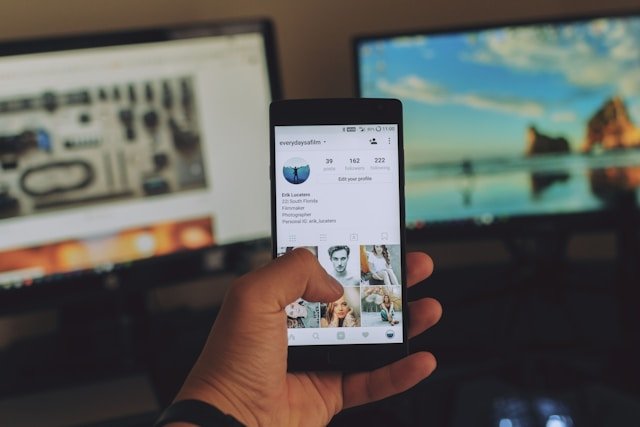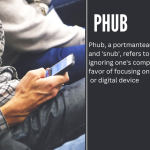In our hyper-connected world, a new social phenomenon has emerged, subtly impacting personal and professional relationships. This phenomenon is ‘phubbing‘ – a portmanteau of ‘phone’ and ‘snubbing’. As an expert in digital etiquette and interpersonal relationships, I delve into the world of phubbing, exploring its nuances and implications on our daily interactions.
What is Phubbing?
Phubbing refers to the act of snubbing someone in favor of a mobile phone. It’s a common occurrence at dinner tables, meetings, and social gatherings where individuals prioritize scrolling through their smartphones over engaging with the people present. Initially coined in 2012, phubbing has since become a global issue, transcending cultural and age barriers.
The Psychological Impact of Phubbing
The impact of phubbing on mental and emotional health is profound. Studies have shown that being phubbed can lead to feelings of social exclusion, lowered self-esteem, and increased anxiety. This can be particularly detrimental in close relationships where emotional connection and communication are key.
Social Exclusion and Relationship Strain
When someone is phubbed, they often feel ignored or sidelined. This sense of social exclusion can strain relationships, leading to dissatisfaction and conflict. In romantic relationships, phubbing can create a divide, as partners may feel undervalued or ignored.
Impact on Mental Health
The feeling of being phubbed can also contribute to mental health challenges. People who are regularly phubbed may experience increased feelings of loneliness and depression. This is especially true among adolescents and young adults who are more sensitive to social rejection.
Phubbing in the Professional Sphere
Phubbing doesn’t just affect personal relationships; it has implications in the professional world too. In meetings, phubbing can be perceived as disrespectful and can diminish the effectiveness of communication. It creates barriers to active listening and engagement, crucial elements for successful teamwork and collaboration.
Combating Phubbing
Awareness and Mindfulness
The first step in combating phubbing is awareness. Recognizing our own phubbing behavior and its impact on others is crucial. Mindfulness practices can help us stay present and engage more fully with those around us.
Setting Digital Boundaries
Creating digital boundaries is another effective strategy. This can include designated phone-free times or areas, ensuring that attention is focused on the people and tasks at hand.
Fostering Open Communication
Open communication about phubbing and its effects can also be beneficial. Discussing how it feels to be phubbed and expressing the desire for undivided attention can foster understanding and reduce phubbing behavior.
Navigating the Digital Age: Strategies for Managing Phubbing
As we continue to explore the phenomenon of phubbing, it becomes increasingly important to develop strategies to manage this behavior in both personal and professional settings. The key lies in striking a balance between the digital world and real-life interactions.
Education and Awareness Programs
Raising awareness about the consequences of phubbing is crucial. Educational programs, especially in schools and workplaces, can play a significant role in highlighting the importance of face-to-face interactions. Workshops and seminars focusing on digital etiquette can help individuals understand the impact of their behavior on others.
Role of Technology in Combating Phubbing
Ironically, technology itself can offer solutions to phubbing. There are apps designed to monitor screen time and encourage digital detox. These tools can help individuals become more conscious of their phone usage and reduce the tendency to phub.
Enhancing Personal Connections
In a world where digital communication is ubiquitous, prioritizing personal connections has become more important than ever. Simple practices like maintaining eye contact, actively listening, and engaging in meaningful conversations can significantly reduce the inclination to reach for the phone.
Phubbing and Mental Health Support
Recognizing the mental health implications of phubbing, there should be support systems in place. Counseling and support groups can offer assistance to those who feel isolated or stressed due to being phubbed. Similarly, individuals who struggle with excessive phone usage can benefit from professional guidance.
The Role of Society and Culture
Societal norms and cultural values play a significant role in shaping behaviors like phubbing. As a society, promoting values of respect, empathy, and mindfulness can help in reducing phubbing. Encouraging a culture where people feel valued and heard can decrease the need to seek validation or distraction through digital means.
Leadership and Phubbing
In the workplace, leadership plays a pivotal role in setting the tone against phubbing. Leaders who model attentive and respectful behavior can influence the organizational culture, making it more inclusive and communicative.
The Future of Phubbing
Looking forward, the challenge will be to adapt to an ever-evolving digital landscape while maintaining the integrity of our social interactions. This balance is not just desirable but essential for the well-being of individuals and societies. The fight against phubbing is not about demonizing technology but about using it wisely to enhance, not hinder, our human connections.
Final Thoughts
Phubbing is a multifaceted issue that requires a comprehensive approach. Through awareness, education, and a concerted effort to value personal interactions, we can mitigate the negative effects of phubbing. By embracing these strategies, we can look forward to a future where technology serves to enrich our lives and relationships, not detract from them.
Author’s Note: In an age where digital devices are integral to our lives, understanding and addressing the impact of phubbing is crucial. As we navigate this terrain, let’s commit to being more present and connected with those around us, cherishing the human experience beyond the digital realm.
Frequently Asked Questions (FAQs) About Phubbing
Q1: What exactly is phubbing?
A: Phubbing is a term that combines “phone” and “snubbing.” It refers to the act of ignoring someone in a social setting by focusing on your mobile phone instead. It’s a common occurrence in both personal and professional environments.
Q2: Why is phubbing considered a problem?
A: Phubbing is problematic because it can lead to feelings of social exclusion, reduced quality of interpersonal relationships, and can negatively impact mental health. In professional settings, it can hinder effective communication and collaboration.
Q3: Can phubbing affect mental health?
A: Yes, phubbing can impact mental health. Regularly being ignored in favor of a phone can lead to feelings of loneliness, reduced self-esteem, and increased anxiety or depression, especially in sensitive demographics like adolescents.
Q4: What can be done to reduce phubbing?
A: Reducing phubbing involves awareness of one’s own behavior, setting digital boundaries, and prioritizing face-to-face interactions. Technology can also aid in managing screen time. Additionally, fostering a culture that values present-moment awareness can help.
Q5: How does phubbing impact relationships?
A: In relationships, phubbing can create a sense of neglect and lower relationship satisfaction. It can cause feelings of being undervalued or ignored, leading to conflicts and a reduction in the quality of the relationship.
Q6: Are there any tools or apps to help combat phubbing?
A: Yes, there are various apps designed to monitor screen time and encourage digital detox. These tools can help users become more conscious of their phone usage and promote a balanced digital lifestyle.
Q7: How can workplaces address the issue of phubbing?
A: Workplaces can address phubbing by promoting digital etiquette through policies and training. Leaders can set examples by prioritizing engaged, phone-free meetings and encouraging in-person communication.
Q8: Can phubbing be a sign of other underlying issues?
A: In some cases, excessive phone use and phubbing can be symptomatic of underlying issues like social anxiety, difficulty in face-to-face interactions, or a reliance on digital validation. Professional help may be needed in such cases.
Q9: Is phubbing a global issue?
A: Yes, phubbing is a global issue. With the widespread use of smartphones and social media, phubbing transcends cultural and geographical boundaries, affecting people worldwide.
Q10: What can individuals do to help others who are struggling with phubbing?
A: Individuals can help by initiating open conversations about the impact of phubbing, encouraging digital-free zones or times, and modeling attentive, present behavior in social interactions.
Remember, awareness and intentional action are key to managing and overcoming the habit of phubbing. By recognizing its impact and making conscious choices, we can foster healthier and more fulfilling interpersonal connections.





